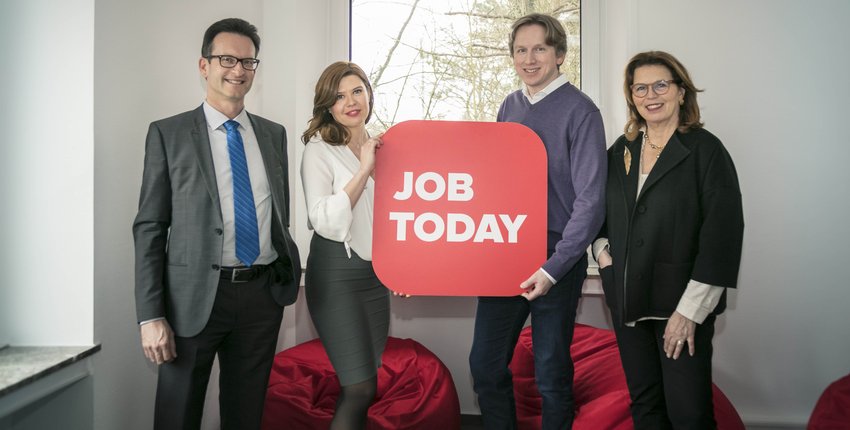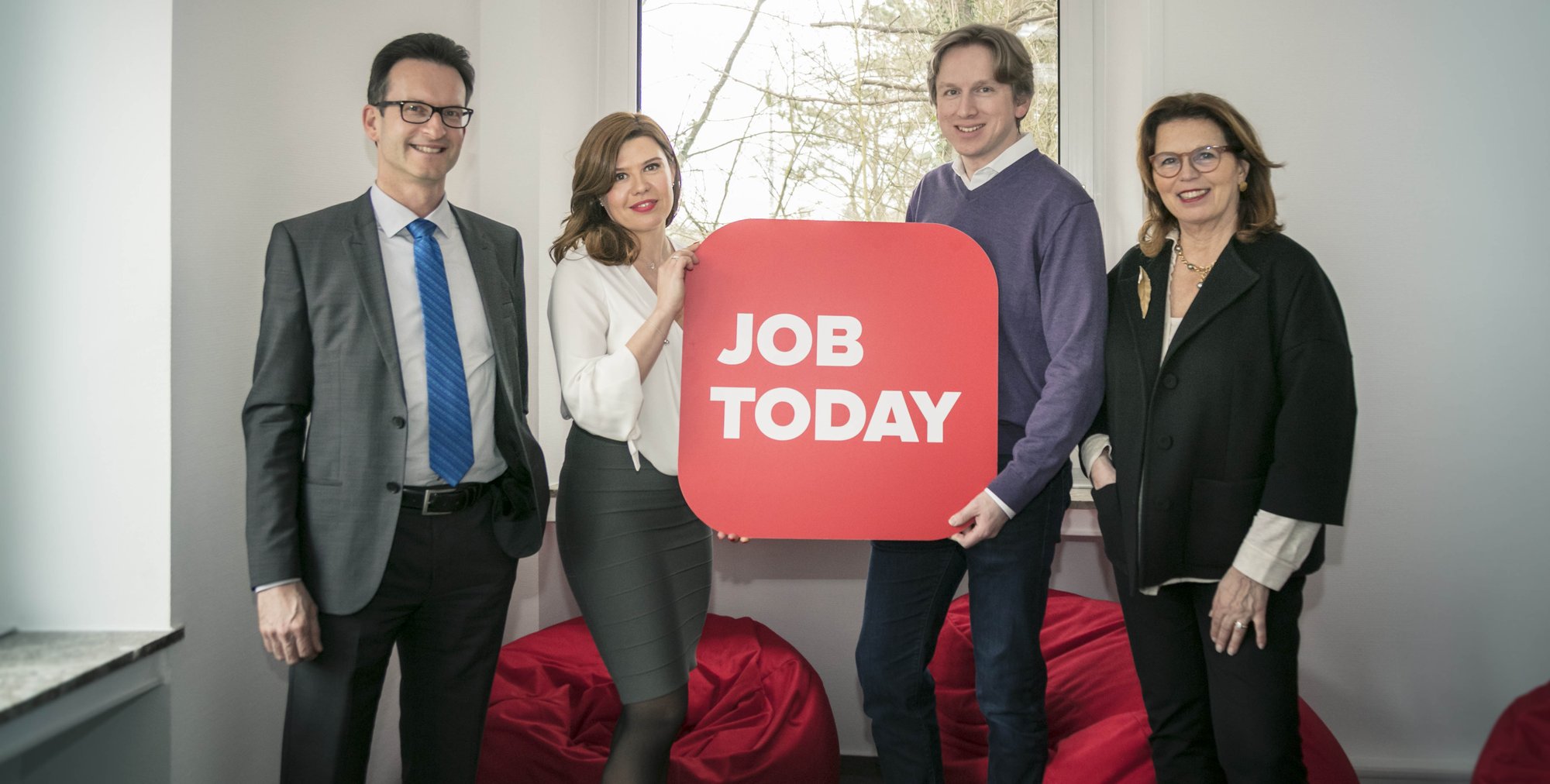

JOB TODAY is a leading mobile marketplace for casual jobs that connects employers with available candidates in a matter of seconds. The company - co-founded in April 2015 by Polina Montano and Eugene Mizin - quickly gained traction across the entire country. A year after its launch, JOB TODAY opened UK market with a base in London and hires now 30 employees in Luxembourg.
JOB TODAY has since processed over 50 million applications from over three million applicants and is the UK's number one hiring app. Today JOB TODAY is the fastest growing mobile hiring company in the world and has a community of employers and candidates that have exploded across Spain and the UK. Its platform reaches over 400.000 businesses and has delivered over 100 million candidate applications. The immediate targets of the company are all the businesses with a high turnover in blue-collar staff, especially the hospitality and retail sectors, but JOB TODAY 's clients are also large enterprises with constant hiring needs like McDonald's, Benefit, Holiday Inn, Vodafone, Starbucks, Greene King, Marriott, EAT.
Interview with Polina Montano, COO JOB TODAY.
What projects are you currently working on?
We are building a global hiring platform for casual jobs that connects employers and jobseekers instantly and removes friction from the recruitment process through social technology. We believe in hiring being all about connecting humans to humans, not CVs to a job. We commit to helping employers and jobseekers connect today: because today is when it matters to them. We are looking to transform blue-collar recruitment in our current markets and connect people to new jobs. A job brings a paycheck, but it also brings self-esteem and dignity. We believe that 24 hours is enough time to change somebody's life. That's why we spend each day working hard to remove barriers, make connections and create opportunities. We're making the world a better place for millions of people, one job at a time.
What successes are you particularly proud of ?
We are most proud to help hundreds thousands of people to find jobs they need. In the past year, JOB TODAY has become the number one hiring app in its markets of operation, the UK and Spain, by helping employers and jobseekers connect instantly and changing the way hiring is done in traditional mass industries such as hospitality and retail. In the last year, the number of jobseekers using the platform has grown by 100%, and now totals over 5 million. The number of businesses using the platform has also grown by 100%, and now totals over 400,000. Over 100 million job applications have been processed, converting to over one million hiring conversations each month. JOB TODAY is continually innovating and adapting its product, introducing features that enable social signaling and help jobseekers to show their personalities and motivation.
What are the biggest challenges your sector is facing ?
Talent shortage by far. Many people think that " employers struggling to fill open jobs " is the same as a " shortage ", but the definition of the term " shortage " actually stands for something else. A job shortage is defined as an economic condition in which there are insufficient qualified candidates to fill the market demand for employment at any price. Well, it seems we are living in a " job seeker " market where jobs are plentiful and employers are faced with a cruel shortage of available, qualified and motivated candidates. Attracting best talent becomes a real challenge, and it is not only about the shortage of the candidates, but also about how to approach them and fall in their good graces. Social media is changing the expectations on both sides of the equation. Employers and jobseekers, expect to be found (because of the way people are used to engage with social media, people expect to be found rather than find. According to statistics that seems to be the case for 70% of 20-30 year olds).
Transparency and its growing importance stands as one of the main trends in hiring today. Both parties (of the recruitment process) want to know more about each other. Employers want to see character traits of candidates such as personality, reliability or motivation for example. Jobseekers want to know more about " How it feels like working at that company, what people who work there have to say, are they happy about how they are treated by their hiring manager/ employer " , is it a " great place to work "? Employer branding has never been more "in" for all the good reasons mentioned above. Same is true for video interviews or any other tool that helps job seekers broadcast their personalities and skills.
There is one more undeniable trend in the hiring universe: immediacy. Overwhelming migration to mobile interface plays its role here: mobile stands for things happening right now and right here, at your fingertips.
Coming back to low pay and precarious conditions that unfortunately are offered for entry level positions in a number of industries - this is the very reason of sky high churn of staff. Jobseekers are constantly searching for better opportunity: higher wage, better conditions, and brighter prospects of career growth. Many of them are working 2 to 3 jobs to make the ends meet.
All of the factors described above only fuel the increasing need for immediacy: shortage of candidates resulting in employers needing staff "yesterday", shift to mobile bringing the expectation "I want an answer now", high churn and need for constant job hopping due to poor wages. At JOB TODAY, we are building a social hiring platform that is on the forefront of both trends: immediacy and transparency.
If you could change one thing about your sector, what would it be? How could the Chamber of Commerce support you ?
First of all, it would be to promote the IT and tech sectors to girls, who are still too few to work in those sectors, and to promote a real "policy" in terms of education and training of "female" talents in the IT sector.
Photos: Pierre Guersing






